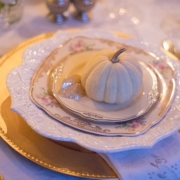What Fine Dining Can Teach Us About Writing
I’m a nut for cooking shows. I’m not talking about drama-ridden, spoon-throwing reality shows, but the ones with absolute masters of culinary experience. Maybe it’s because I can draw so many parallels between great cooking and great writing.
I recently binged on Chef’s Table on naka Netflix (highly recommended) and revelled in the story behind each master. As I did, specific things stood out as metaphors for exceptional writing.
Now, I’m far from being a ‘master’ writer, but as an aspiring one, I look for inspiration.
These are elements of great writing that I’ve understood, but now have a very visual way to help illustrate:
Table of Contents
MATH THEN ART
Great chefs and their crazy techniques have a foundation in classic dining. They might be doing groundbreaking things now, but they started on prep lines like everyone else. From there, it was culinary school, time in Paris and refining a trade to perfection.
Take Francis Mallman, an icon in original eating, but he did his time on the streets of Paris. He grasped leading culinary skills, then when he found his voice, he could execute a vision with trained quality.
This is what I mean about math then art.  Once you understand the formulas, you can play outside the boundaries. Writing works the same way.
Once you understand the formulas, you can play outside the boundaries. Writing works the same way.
I think less experienced writers can feel this pressure to be exciting and unique. Trying to make your mark in a sea of content with loud words and almost unnecessary creativity.
Take time to read. Read a lot. Then write. Write more. Build up that foundation of skill that supports your creativity, wherever it takes you.
INGREDIENTS ARE THE KEY
There’s a point where Dan Barber explains how the quality of a dish will never exceed the quality of its ingredients. He masters the growth and presentation of exceptional ingredients, highlighting their value, not masking it with extra flavours.
I think writing is the same way. A piece of writing is only as good as its story. The story is the pure components of content, that which can exist on its own but becomes elevated through technique and presentation.
So before you begin writing, make sure you have a powerful story at the core. Words should be used to highlight your story, not change its flavour.
Just as too much work can spoil ingredients, too much content can spoil a story.
SIMPLICITY AT ITS FINEST
 Massimo Bottura created a mark in Italian dining by ultra-simplifying classic dishes. He created an exquisite tortellini dish, and only put five on a plate to highlight their quality. Decadent, luxurious and outrageous, but effective in its purpose.
Massimo Bottura created a mark in Italian dining by ultra-simplifying classic dishes. He created an exquisite tortellini dish, and only put five on a plate to highlight their quality. Decadent, luxurious and outrageous, but effective in its purpose.
By reducing the number of components on a plate, we savour each bite far more. Words can work the same way.
Take your time and write pages of content. Pages and pages. Now cut it down. Cut it down more. Remove words until what remains is a crisp articulation of your thoughts.
DINING IS THEATRE
Food may have more impact in simplicity, but it still needs theatre. The aroma, the presentation, the setting; these all affect how we experience our food. Magnus Nilsson does an exquisite job of building amazing dishes in a setting unlike what most will have ever experienced.
Remote, rugged yet refined. His dishes are a homage to the isolated region, set on the stage of sensory overload. An experience so unique, people are travelling to the middle of nowhere to see it.
This is one of the great aspirations of writing, to entertain.
Regardless of the subject, there is a desire from the reader to be captivated. Different audiences are excited differently, but that value doesn’t change. Understand your audience and what will spark their interest, and use this to create content theatre.
Building excitement from words takes a blend of practiced skill and personal passion, which brings us to the final point.
COOK FOR YOU
One of the great stories was of Niki Nakayama who overcame cultural and societal pressures to succeed in cooking.
This was the classic story of the struggle to succeed overcome by hard work and determination. But it doesn’t stop there. She reached business success, but the food wasn’t personally satisfying. It was too commercial.
She sold her business and started a new one with unique cuisines based around her interest. Cooking became about communicating her vision, not about pleasing everyone else. Once she found this passion, it came across in the food, and people followed.
Writing has to be the same way. Write for you.
“That sounds great Sean, but I write for a company.”
We all have customers and obligations, but when writing becomes an expressionless job, the content will suffer. Your greatest writing will come when you feel like you found your voice. Even when it’s writing for others, I believe you can transfer your personality in the content.
I’m happy to find so much joy in writing, and part of that is knowing there is so much more to know. If you’re passionate in what you do and willing to work hard, you’ll find a way to become a master.
About the author: Sean Kopen

With a unique, story-based approach to writing, Sean Kopen is an experienced content marketing specialist and instructional designer. Review some of his personal stories and perspectives at his website www.seankopen.com




Trackbacks & Pingbacks
[…] Writing for international clients […]
Comments are closed.